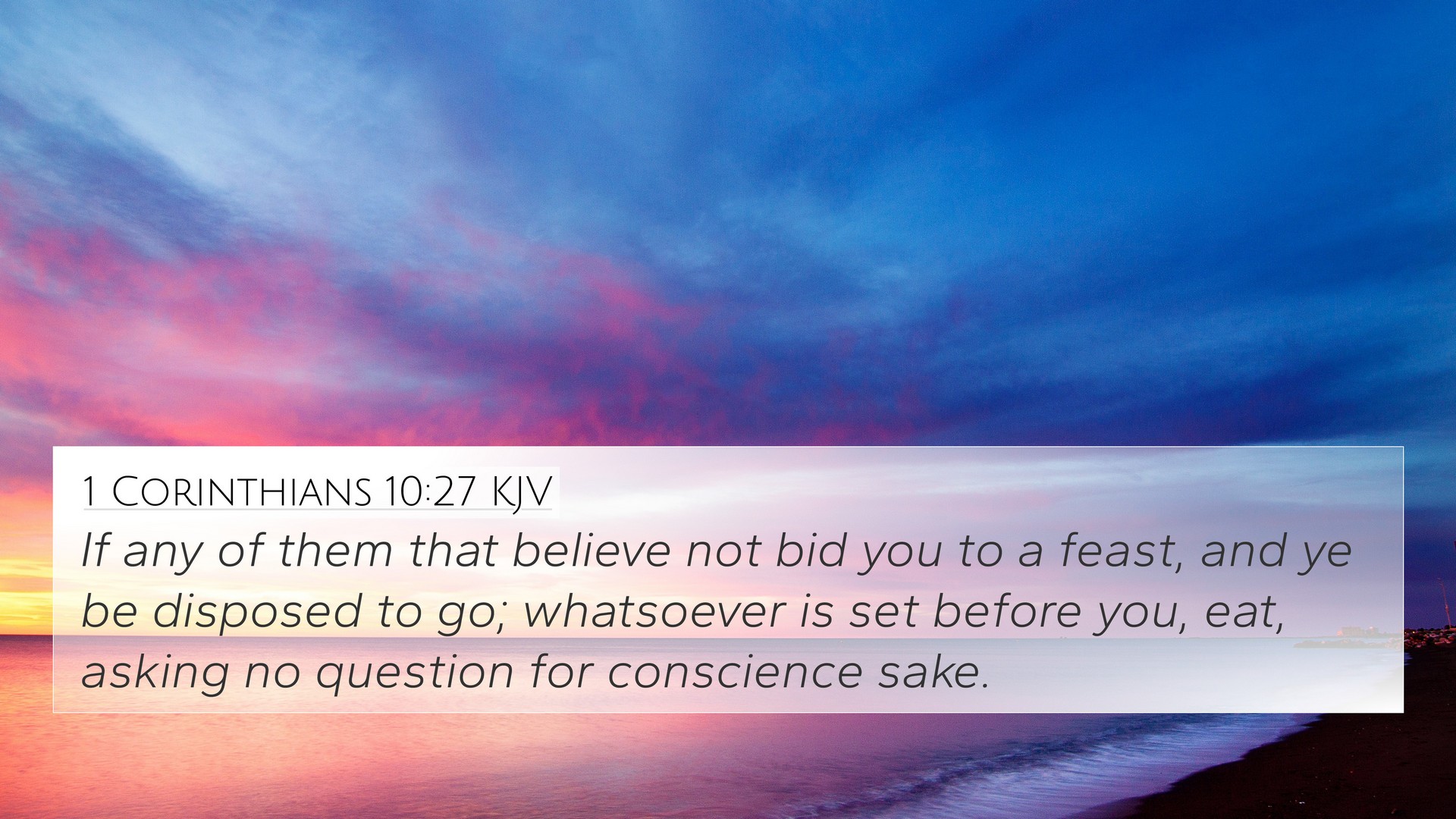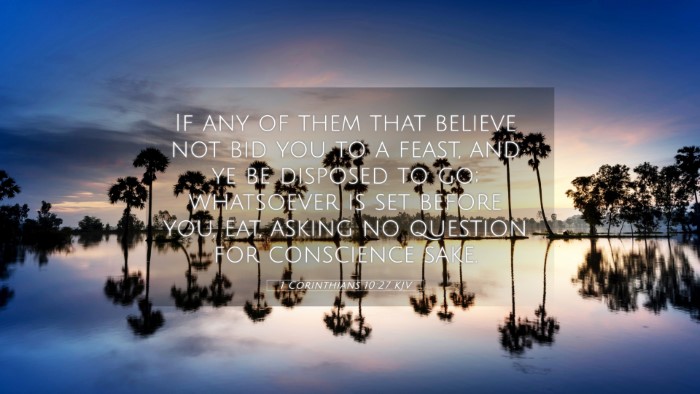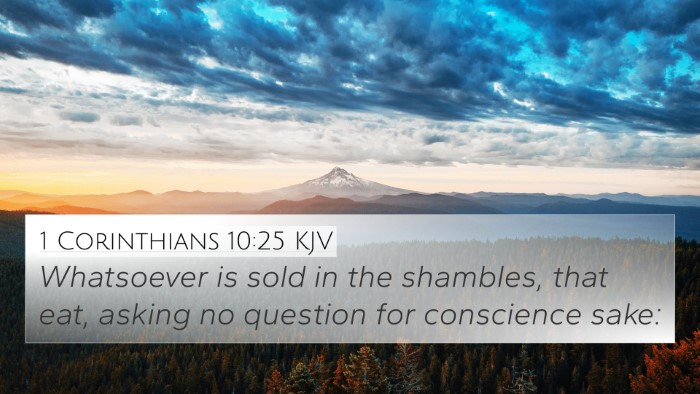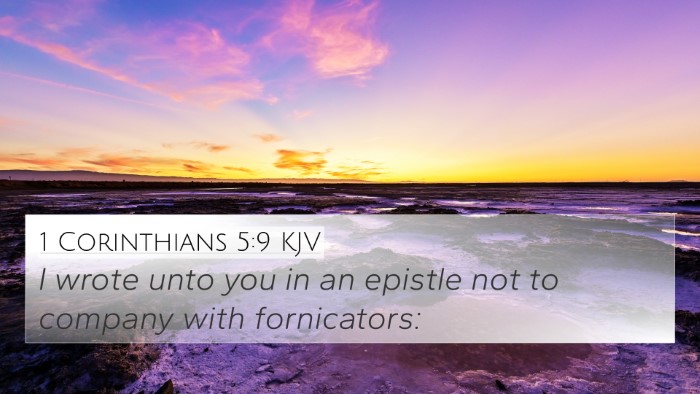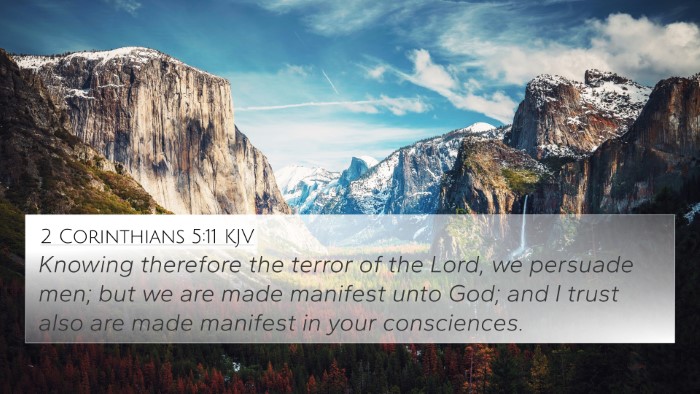Understanding 1 Corinthians 10:27
Bible Verse: 1 Corinthians 10:27 - "If any of those who do not believe invite you to dinner, and you desire to go, eat whatever is set before you, asking no question for conscience' sake."
Exegesis and Interpretation
The directive in this verse addresses the conduct of believers when dining with non-believers. Paul suggests that when invited by someone who does not hold Christian faith, believers are permitted to partake in the meal without inquiring about the food’s origins, particularly concerning whether it has been offered to idols. This reflects an attitude of openness and fellowship.
Contextual Background
In the broader context of 1 Corinthians, Paul is navigating the complexities of living as a Christian in a society where idol worship was prevalent. He emphasizes the importance of one's actions and their implications for witness and relationship, balancing freedom with responsibility.
Key Themes
- Christian Liberty: This verse illustrates the principle that believers have freedom in Christ, but such liberty is exercised with consideration of others.
- Conscience and Community: Paul advises caution to maintain a clear conscience, devoid of suspicion about the food, which reflects the communal living principles of the early church.
- Witness and Relationships: Engaging with non-believers in social contexts, as encouraged in this verse, fosters relationships that could lead to opportunities for sharing the Gospel.
Commentary Insights
Matthew Henry: He highlights that the principle behind not questioning the food offered is about not allowing controversial issues to hinder fellowship. Emphasizing love and peace, Henry denotes that engaging in such meals may present genuine opportunities to witness to one’s faith.
Albert Barnes: Barnes states that this instruction does not imply endorsement of idol worship. Instead, it serves as practical advice to prioritize hospitality and relational connection over personal scruples about food origins. It points to the belief that food itself does not defile.
Adam Clarke: Clarke expounds that the underlying message of this scripture is a liberating approach. He references the importance of adapting practices that facilitate communication and do not alienate others for consciousness’ sake. Clarke suggests that this strategic engagement can aid in spreading the Christian faith.
Cross-References
To deepen understanding and establish connections between Bible verses, here are related passages:
- 1 Corinthians 8:10: Discusses the potential stumbling block that food offered to idols may pose for others.
- Romans 14:14: Paul affirms that nothing is unclean in itself, yet emphasizes personal conscience.
- Acts 10:14-15: Peter's vision challenges Jewish dietary laws, encouraging a broader acceptance of God's creation.
- 1 Timothy 4:4-5: Paul teach that all food is sanctified by the word of God and prayer.
- Matthew 5:13-16: Highlights the role of believers as salt and light, linking how conduct influences witness.
- Romans 15:7: Calls for acceptance of one another as Christ accepted us, focusing on community within diversity.
- Colossians 2:16-17: Discusses the freedom believers have over dietary observances, reinforcing the idea of spiritual substance over rituals.
Thematic Connections
1 Corinthians 10:27 serves as an example of how to navigate dietary issues, relationships, and the mission of believers in a culturally diverse environment. It encourages readers to reflect on the following themes:
- Hospitality vs. Holiness: Balancing interaction with those outside of faith while maintaining a witness to one's own beliefs.
- Freedom in Christ: A call to embrace God’s provisions with gratitude, mindful of others' convictions.
- Engagement and Witness: Pursuing social connections as avenues for sharing personal faith journeys without compromising moral standards.
Tools for Cross-Referencing
To effectively study and understand scripture through cross-referencing, consider using:
- Bible Concordance: A device for finding specific words and their locations in the biblical text.
- Bible Reference Resources: Guides that elaborate various connections between verses to enhance understanding.'
- Cross-reference Bible Study: Engaging methodologies that encourage the exploration of related scriptures.
- Bible Chain References: A method to link passages thematically across both Old and New Testaments.
Conclusion
1 Corinthians 10:27 invites believers to navigate the social complexities of their faith with love and awareness. It encourages a posture of humility and a willingness to engage constructively across diverse cultural lines. By understanding context and employing cross-references, Christians can deepen their engagement not just with scripture but with the world around them, ultimately reflecting their faith in compassionate and authentic ways.
